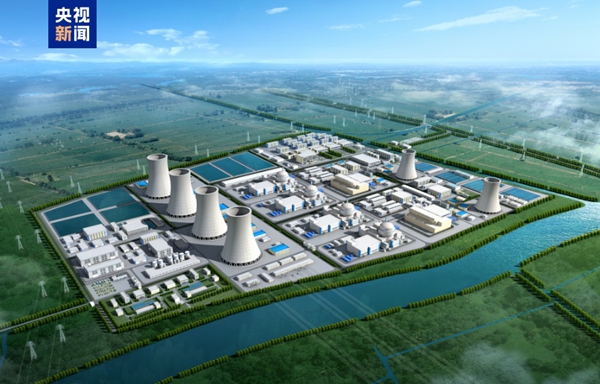Jiangsu opens nuclear power to private investment

(Photo from cctv.com)
Jiangsu has made a significant step by opening its nuclear power sector to private investment for the first time. The Xuwei nuclear power heating plant in Lianyungang City will allow private enterprises to hold a 10% stake, according to the Jiangsu Provincial Energy Administration on December 4.
Operated by China National Nuclear Power Co Ltd, the plant is the world's first to combine high-temperature gas-cooled reactors with pressurized water reactors. Designed to supply low-carbon industrial steam to the Lianyungang petrochemical base, it is one of five new nuclear power projects greenlighted by the State Council in August to encourage private investment.
Professor Bai Junhong, Dean of the Business School of Nanjing Normal University, emphasized the symbolic importance of this move, noting it reflects the country's strong commitment to supporting private sector growth.
The Xuwei project employs a "nuclear reactor - steam turbine generator set - heating system" collaborative model, an approach that accelerates the decarbonization of energy-intensive industries and aligns with the "dual carbon" goals of reaching the peak of carbon emissions by 2030 and attaining carbon neutrality by 2060.
The Lianyungang petrochemical base, one of China’s seven national petrochemical industry hubs, requires significant steam for its operations. The project will be developed in two phases. With groundbreaking scheduled for 2025, the first phase will involve an estimated investment of 70 billion yuan. Upon full completion, the project will supply about 8,000 tonnes of industrial steam per hour, reducing annual coal consumption by 14.5 million tonnes and slashing carbon dioxide emissions by 39.2 million tonnes.
Nuclear power projects, while requiring longer construction and operation cycles, typically recoup investments within 15 to 20 years, followed by sustained and stable returns. In selecting private investors, Lianyungang will consider various factors such as the company’s comprehensive strength and relevance. The city aims to achieve a win-win outcome by promoting green and low-carbon energy transition, strengthening the petrochemical industry, and fostering the growth of private enterprises.
Jiangsu plans to further expand private investment opportunities in major projects, such as offshore wind power farms, said Qi Yusong, Deputy Director of the province’s Development and Reform Commission, also Director of the Provincial Energy Administration.